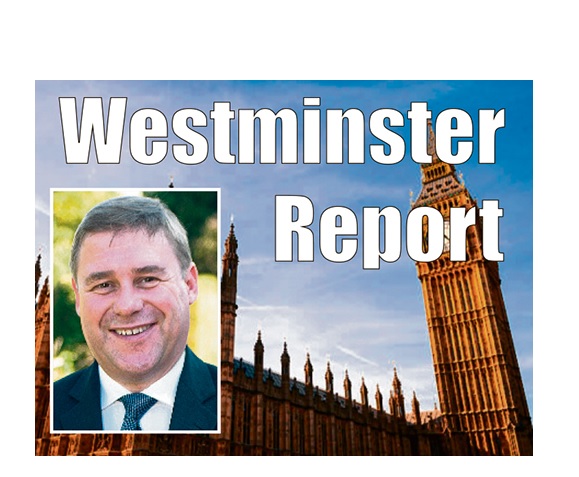Share this story!

Leigh On Sea News: Westminster Report – BY The Rt Hon Mark Francois Member of Parliament for Rayleigh and Wickford.
Westminster Report - BY The Rt Hon Mark Francois Member of Parliament for Rayleigh and Wickford.
BY The Rt Hon Mark Francois Member of Parliament for Rayleigh and Wickford.
OPPOSING Labour’s “Devolution Plans”- Let’s Have a Referendum First!
Just before Christmas, the Labour Government unveiled its new White Paper on so-called “Devolution”.
For counties like Essex, these proposals represent a dramatic shake-up of local government. Yet, despite claims of progress, the plan risks creating confusion, inefficiency, and a lack of accountability—without the democratic mandate such sweeping changes require.
At its core, the White Paper seeks to replace the current two-tier system of Essex County Council and its 14 lower-tier authorities with another version of a two-tier model. It proposes establishing a “Strategic Authority,” possibly led by a Mayor, alongside several Unitary Authorities, each representing a population of at least 500,000.
This restructuring would involve merging existing councils, such as Basildon and Rochford into much larger ones.
Crucially, there is no public demand for these changes.
In my 23 years as an Essex MP, not once has a constituent on a doorstop called for a “Mayor of Essex.” These plans appear driven by Whitehall’s desire for centralisation rather than genuine grassroots demand.
They are costly, lack local support, and offer no guarantee of improved services for Essex taxpayers. The proposals could take years to implement, delivering little more than bureaucratic reshuffling.
Moreover, cancelling the upcoming May local elections would be anti-democratic. As I recently argued in the House of Commons, we should first have a county-wide referendum to test if it really does have public support:
“Despite what senior county councillors are telling Ministers, there is absolutely no clamour in Essex for devolution—quite the reverse. Nor do the public support the Government’s proposal to cancel the local elections; that is anti-democratic.
If the Government do press ahead, why do we not take the opportunity to have a county-wide referendum in Essex to see whether the public—the council taxpayers—really support this? They can vote for massive change or to remain as they are.
If there is such a referendum—I never thought these words would pass my lips—I will gladly vote remain.”
Linked to this, another critical area of concern is how these proposals might influence planning policy. The White Paper champions Spatial Development Strategies (SDS), a system currently in use by Mayor Sadiq Khan in London.
Under this model, each Unitary Authority would be required to produce its own Local Plan.
However, these plans would need to conform to an overarching SDS determined by the Strategic Authority, presumably based in Chelmsford.
This system raises serious questions about local control. Strategic Authorities would decide key issues such as housing targets and distribution. Unitary Authorities would then be left to determine where these developments would go—a process fraught with potential conflict.
In London, the SDS approach has proven deeply problematic. Boroughs often clash with Mayor Khan over housing targets and development sites. For example, Khan’s preference for building on tube station car parks has sparked significant opposition from local communities, including commuters who rely on these facilities.
Ironically, the Labour Government has now announced plans to reduce housing targets in London—targets that Mayor Khan has consistently failed to meet.
However, this reduction comes at the expense of increasing targets in the Home Counties, including Essex. The Rochford District, like other parts of Essex, is likely to face a disproportionate burden, with very limited say over how these targets are determined.
Compounding the issue, the White Paper encourages existing lower-tier councils to continue developing Local Plans, even as these councils are earmarked for abolition. This creates an environment of uncertainty for local Government officers, many of whom are understandably concerned about their future employment.
The result is likely to be delays and confusion, rather than the streamlined planning process the Government claims to champion.
Moreover, the Government’s proposal to mandate that at least 50% of all major housing developments consist of affordable housing, adds another layer of complexity. While this ambition may appear laudable, it often makes developments economically unviable for private housebuilders.
This policy has already failed in London, where Mayor Khan has long pursued similar objectives without meeting his housing targets, so why would it work here?
The White Paper’s housing proposals are not just ineffective—they risk exacerbating the very problems they claim to solve.
Labour’s ongoing efforts to penalise private landlords, for instance, are driving many out of the market. As landlords sell up, the availability of rental properties dwindles, placing additional pressure on local councils’ housing lists. Instead of addressing housing pressures, these measures are likely to make them even worse.
In summary, the Government’s Devolution White Paper is a misguided attempt to impose a top-down restructuring of local government. In Essex, the proposed system offers no clear benefits, only the prospect of costly reorganisation, delays, and diminished local control on planning and housing policy.
I do not believe that we need another layer of bureaucracy, instead local government should be empowered to deliver efficient services and sustainable development without interference from a Strategic Authority that lacks public support.
Let’s have a Referendum on it!
Visit: https://leigh-on-sea.news
Contact us. Email: [email protected]
Facebook: https://www.facebook.com/leighonsea.news
Twitter: @leighonsea_news
